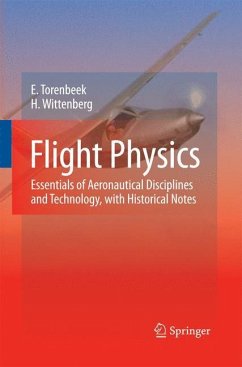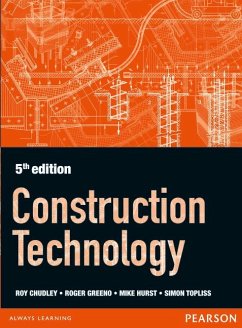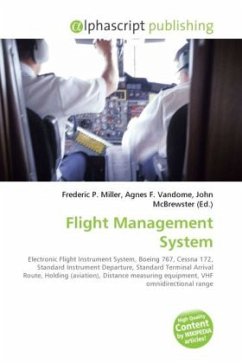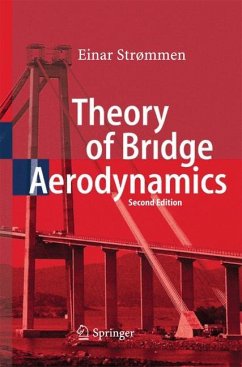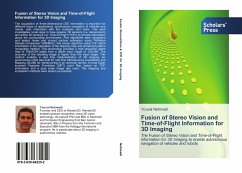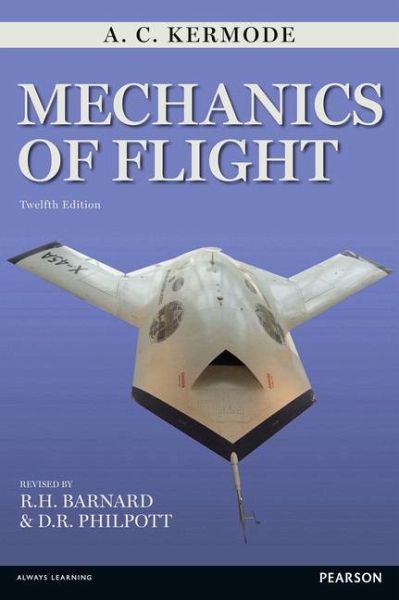
Mechanics of Flight
Versandkostenfrei!
Versandfertig in 2-4 Wochen
114,99 €
inkl. MwSt.

PAYBACK Punkte
57 °P sammeln!
Mechanics of Flight
Descriptions are aided by the use of a large number of diagrams, illustrations and photographs.
Each chapter contains numerous practice questions to test and develop the reader’s understanding of key concepts.
A full appendix of numerical questions is supplied together with solutions.
Backcover
Mechanics of Flight is an ideal introduction to the basic principles of flight for students embarking on courses in aerospace engineering, student pilots, apprentices in the industry and anyone who is simply interested in aircraft and space flight. Written in a straightforward and jargon-free style, this popular classic text makes the fascinating topic of aircraft flight engaging and easy to understand.
Starting with an overview of the relevant aspects of mechanics, the book goes on to cover topics such as air and airflow, aerofoils, thrust, level flight, gliding, landing, performance, manoeuvres, stability and control. Important aspects of these topics are illustrated by a description of a trial flight in a light aircraft. The book also deals with flight at transonic and supersonic speeds, and finally orbital and space flight.
Key Features
This twelfth edition has been fully revised and updated to conform to current teaching practices and to cover recent technical developments in the field. Aspects of unmanned aerial vehicles (UAVs) are covered, and additional material on the use of computational fluid dynamics (CFD) is included.
Descriptions are aided by the use of a large number of diagrams, illustrations and photographs.
Each chapter contains numerous practice questions to test and develop the reader’s understanding of key concepts.
A full appendix of numerical questions is supplied together with solutions.
R. H. Barnard PhD, CEng, FRAeS; formerly Principal Lecturer in Mechanical and Aerospace Engineering at the University of Hertfordshire.
D. R. Philpott PhD, CEng, MRAeS; formerly Principal Aerodynamic Specialist at Raytheon Corporate Jets and Reader in Aerospace Engineering at the University of Hertfordshire.
Contents
Preface to Twelfth Edition
Acknowledgements
Chapter 1 Mechanics
Chapter 2 Air and airflow – subsonic speeds
Chapter 3 Aerofoils – subsonic speeds
Chapter 4 Thrust
Chapter 5 Level flight
Chapter 6 Gliding, landing and low-speed flight
Chapter 7 Take-Off and Climb
Chapter 8 Manoeuvres
Chapter 9 Stability and control
Chapter 10 A trial flight
Chapter 11 Flight at transonic speeds
Chapter 12 Flight at supersonic speeds
Chapter 13 Space flight
Appendixes
1 Aerofoil data
2 Scale effect and Reynolds Number
3 Numerical questions
4 Answers to numerical questions
5 Answers to non-numerical questions
Index
Descriptions are aided by the use of a large number of diagrams, illustrations and photographs.
Each chapter contains numerous practice questions to test and develop the reader’s understanding of key concepts.
A full appendix of numerical questions is supplied together with solutions.
Backcover
Mechanics of Flight is an ideal introduction to the basic principles of flight for students embarking on courses in aerospace engineering, student pilots, apprentices in the industry and anyone who is simply interested in aircraft and space flight. Written in a straightforward and jargon-free style, this popular classic text makes the fascinating topic of aircraft flight engaging and easy to understand.
Starting with an overview of the relevant aspects of mechanics, the book goes on to cover topics such as air and airflow, aerofoils, thrust, level flight, gliding, landing, performance, manoeuvres, stability and control. Important aspects of these topics are illustrated by a description of a trial flight in a light aircraft. The book also deals with flight at transonic and supersonic speeds, and finally orbital and space flight.
Key Features
This twelfth edition has been fully revised and updated to conform to current teaching practices and to cover recent technical developments in the field. Aspects of unmanned aerial vehicles (UAVs) are covered, and additional material on the use of computational fluid dynamics (CFD) is included.
Descriptions are aided by the use of a large number of diagrams, illustrations and photographs.
Each chapter contains numerous practice questions to test and develop the reader’s understanding of key concepts.
A full appendix of numerical questions is supplied together with solutions.
R. H. Barnard PhD, CEng, FRAeS; formerly Principal Lecturer in Mechanical and Aerospace Engineering at the University of Hertfordshire.
D. R. Philpott PhD, CEng, MRAeS; formerly Principal Aerodynamic Specialist at Raytheon Corporate Jets and Reader in Aerospace Engineering at the University of Hertfordshire.
Contents
Preface to Twelfth Edition
Acknowledgements
Chapter 1 Mechanics
Chapter 2 Air and airflow – subsonic speeds
Chapter 3 Aerofoils – subsonic speeds
Chapter 4 Thrust
Chapter 5 Level flight
Chapter 6 Gliding, landing and low-speed flight
Chapter 7 Take-Off and Climb
Chapter 8 Manoeuvres
Chapter 9 Stability and control
Chapter 10 A trial flight
Chapter 11 Flight at transonic speeds
Chapter 12 Flight at supersonic speeds
Chapter 13 Space flight
Appendixes
1 Aerofoil data
2 Scale effect and Reynolds Number
3 Numerical questions
4 Answers to numerical questions
5 Answers to non-numerical questions
Index
Dieser Artikel kann nur an eine deutsche Lieferadresse ausgeliefert werden.



